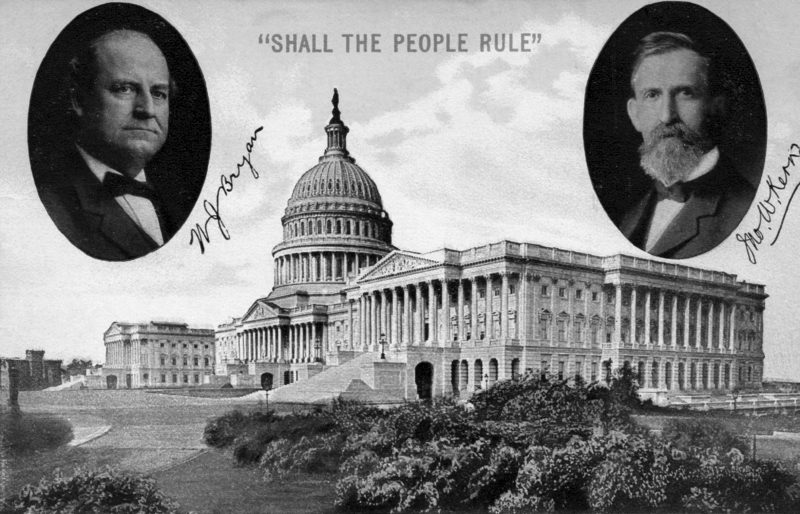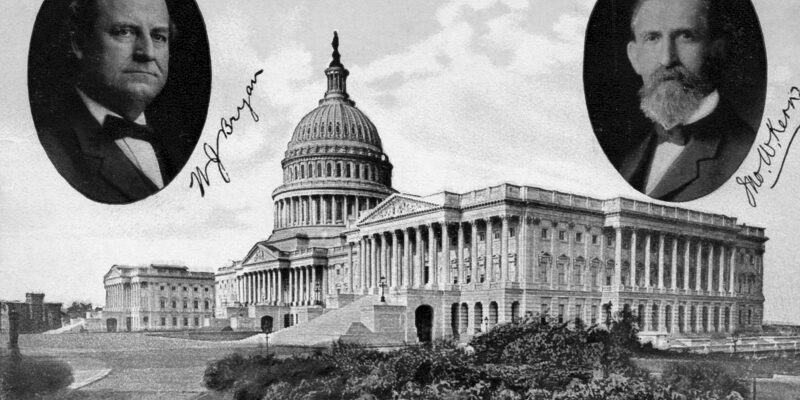An old newspaper from July 1901 dealt with three news items: the visit of William Jennings Bryan to Bristol, the arrival of the Secretary of Agriculture to consider a proposed Appalachian Park reserve and the death of a Blountville Civil War veteran.
Soon after William Jennings Bryan was scheduled to visit Bristol, it appeared that the city had been overrun with hoboes for several days prior to the visit. The transients' scheme was to conduct fleecing schemes on unsuspecting victims when the crowd gathered on that special day.
During the visit, about a half dozen of the suspicious characters were incarcerated and police were on the lookout for others who might embarrass the city. Two strangers were found feigning as cripples and begging for money from gullible residents.
Another, who refused to identify himself, was locked up on that Saturday night for assaulting a visitor with a stone. The gentleman, who was at the Union Depot, suffered a fractured skull. A witness to the attack stated that the stranger first demanded money from the victim but was refused.
Within an hour from the time the tickets for Bryan's lecture went on sale, every seat in the reserved section of the Opera House had been taken. It was evident that hundreds of admirers of the noted Nebraskan would have to be content with seeing him from a distance.

Postcard of William Jennings Bryan and His Running Mate
Mr. Bryan's voice still counted in all parts of the country, but probably more so in his own great section beyond the Mississippi. And it was no small service he rendered the Democratic Party in the west, while Democratic leaders in another sections, who had tried to drive him from the party, were knifing the party's candidate for President.
Many historians firmly believe that no public man in the country's history had been so heavily abused and belittled as William Jennings Bryan. However, he held it together with patience and forbearance that should have won the admiration of even his enemies.
The prohibition victory in Nebraska doubtless was very gratifying to Mr. Bryan, since he was a fearless and forceful foe of the liquor traffic and also for the fact that the substance had been driven out of his state due largely to his never ceasing labors to that end.
Perhaps Bryan is best remembered for joining the prosecution team in 1925 in the trial of John Scopes, a Tennessee schoolteacher charged with violating the Butler Act, which forbid teaching evolution in the public schools. Bryan took the stand and underwent a scathing cross-examination by Clarence Darrow. Although Bryan`s side won the case, it was later thrown out on an appeal. Furthermore, the famed politician paid a high price for the victory; he died less than a week later.
In other news, it was announced here that James A. Wilson, United States Secretary of Agriculture, was on a tour of inspection of the proposed Appalachian Park reserve. The land embraced a section of several states in the South. It required $5 million to buy the lands under contemplation and several more millions to build roads through the remote areas and otherwise improve them.
It was firmly believed that the next Congress would bring about the new Appalachian reserve, but that did not happen. The national park would come several years later. During Secretary Wilson and his party's visit, they spend four days at the Cloudland Hotel on beautiful Roan Mountain.
More news included a Civil War veteran, Mr. James P. Snapp, who died at his home at Blountville, Tennessee at the age of 78. He was described as being a useful citizen and left valuable property to his relatives. He never married, was a good soldier during the War Between the States and took a firm stand for the Confederacy. Mr. Snapp graduated from Emory and Henry College at the age of 20. Some of his many relatives resided in Bristol.

Comments are closed.